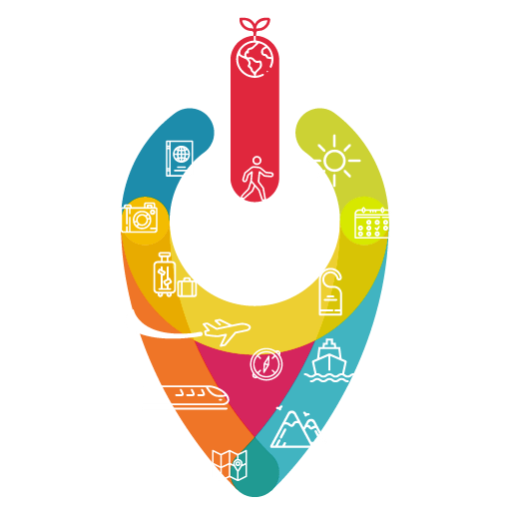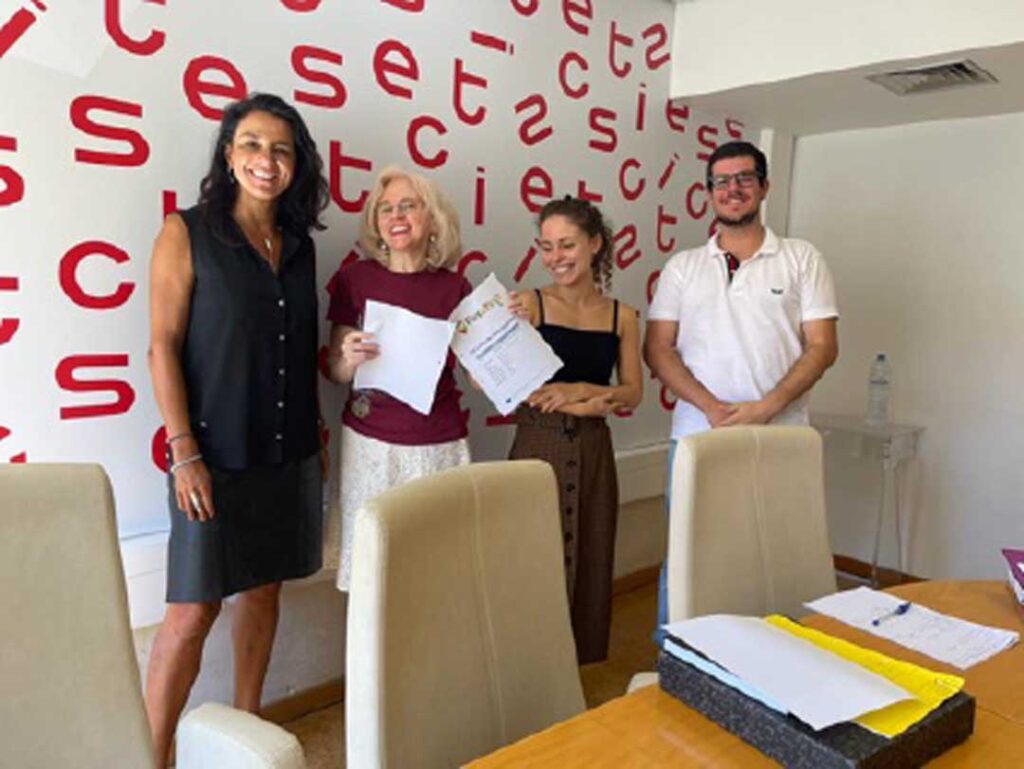The presentation of WP2 tools and applications in major marketing conferences around the world
One RESETTING Portuguese partners, Instituto Universitário de Lisboa (ISCTE), in an effort led by Professor Sandra Loureiro, is applying for three major conferences in marketing, business and sustainability presenting the work done for the RESETTING project.
Professor Sandra Loureiro was assisted in her work by Professor Daniela Langaro, Pedro de Melo Palma, and Ines Silva from Iscte’s Business Research Unit (BRU-IUL), as well as by Professor Adriano Lopes, André Garcia, and Nuno Miguel from Iscte’s Information Sciences, Technologies and Architecture Research Center (ISTAR-IUL).
The first of these conferences will be “GAMMA” – a Global Marketing Conference that will be held in Seoul in July 2023. This is one of the most relevant marketing conference in the world that aggregate various international groups, such as AMA (American Marketing Association), ANZMAC (Australian New Zealand Marketing Association), European Marketing Academy (EMAC), Japan Society of Marketing and Distribution, Korean Scholars of Marketing Science that is usually developed in an Asian country.
The project presented for the conference is called “resarTech: Consumer-brand-AI, VR, & AR relationships”, and concerns the Professor’s major results obtained so far with the RESETLYTICS project.
RESETLYTICS.com is a platform in development in the context of the RESETTING project, and its a web-based application modules of data analyses that empower entrepreneurs and municipalities to improve their performance by means of tracking their current indicators, fostering best practices, and exchanging processes and solutions.
Its modules of data analysis combined in a data visualization platform producing indicators and inferring causality relationships in longitudinal data. Thus, the data visualization platform in development allows us to follow the evolution of the different indicators and at the same time, exchange and discuss best practices to leverage partners that are having less positive performance.
The platform main features are the following:
- A web-based application module to track sentiment analysis concerning tourist activities by means of evaluating reviews in social media to analyze satisfaction (using proxies such as emotions, attitudes, and interaction).
- An online tool to analyze Gaps in the operation of the service provider versus tourist expectations and benchmarks.
- An online tool that allows the self-diagnosis concerning the sustainable practices in place (e.g., water waste, energy saving, carbon emissions). The process of creation of this tool will start with a cluster of 15 SMEs from each municipality.
- A link of a community of multiple partners (e.g., SMEs owners, Municipalities, Suppliers, Tourists) with the objective to promote relationships, synergies, interactions, and cooperation to co-create innovative products and solutions and share best practices.
- The use of Big Data techniques and technologies to anticipate future demand of tourism services in the countries that are part of the consortium.
The second conference will be “EuroMed” – The 16th annual EUROMED academy of business (EMAB), business transformation in uncertain global environments, that will be held in Vilnius in September 2023.
The project presented will concern how to enhance SMEs practices in the tourism sector terms of service quality and sustainability, by using a systematic literature approach to identify and analyse two core constructs: Service Quality and Sustainability. In addition, they also intend to understand how these constructs are measured in the tourism sector, especially regarding small and medium enterprises, to then propose our own measurement scales. The systematic literature review followed several criteria of quality, the scope of the study, and the use of quality ranking of journals where studies are published.
The third conference will be the 10th Responsible Management Education Research Conference, to be held in Lisbon in September 2023.
The work presented will concern “Societal Impact of Sustainable Consumption in a Hyperconnected World”, and will specifically present the “Sustainability Self-Diagnostic Tool” developed for the RESETTING project.
The objective is to present the bibliometric literature review conducted on “Corporate Social Responsibility”, “Sustainability”, “SME” and “Tourism”, as part of the RESETTING European project.
The background of the study lies with the decision taken in 1990 by the United Nations World Tourism Organization ( UNWTO) to start promoting sustainability indicators “as essential tools for policy making, planning and management processes in destinations”.
This was followed by the “European Tourism Indicators System” (ETIS), created by the European Commission in 2016, as a framework to measure the contribution of tourism to sustainable development. The ETIS has the explicit aim of contributing to the improvement of sustainable destination management. Its goal is to help destinations and stakeholders assess their sustainability management practices so they may monitor their effectiveness and development over time.
The methodology followed by the study involved developing a scale that can be used to measure sustainability, as it is necessary to understand which items need to be assessed and what is relevant to SMEs regarding the concept, so it is necessary to search for the relevant literature to acknowledge. A collection of publications on the concepts and the industry was gathered from the online libraries of Web of Science and Scopus to select the most relevant material for this review and to identify the topics discussed. VOSviewer was the software used to analyze the database resulting from the search and selection of articles. It is free software that allows the creation of different map texts based on network data, bibliographic data, and text data.
The results obtained by the study noticed how terms such as effect, performance, company, SME present a high number of occurrences, in line with the keywords used in the research and with the sustainability effect in the performance of companies. Also, there is a correlation between terms such as challenge, change, policymakers, sustainable tourism, education, governance, and sustainable development, showing the importance of policymakers for SMEs to make progress in sustainable development. Researchers focusing on concepts such as consumer and behaviour show that the relevance of sustainability does not end in environmental or financial area, but that today is highly considered in the decision-making process of customers.
https://ibs.iscte-iul.pt/event/3122/10th-responsible-management-education-research-conference
The hopes of the team is that the study can serve as a basis for this scale that will be then enhanced through interviews to propose a helpful and relevant tool for SMEs.
We hope the conference planners will recognize the importance of the work done by the WP2 and select them!
If you wish to be a part of the RESETTING project, we would like to remind you that the third and last call for small and medium enterprises operating in the tourism business is currently open!

